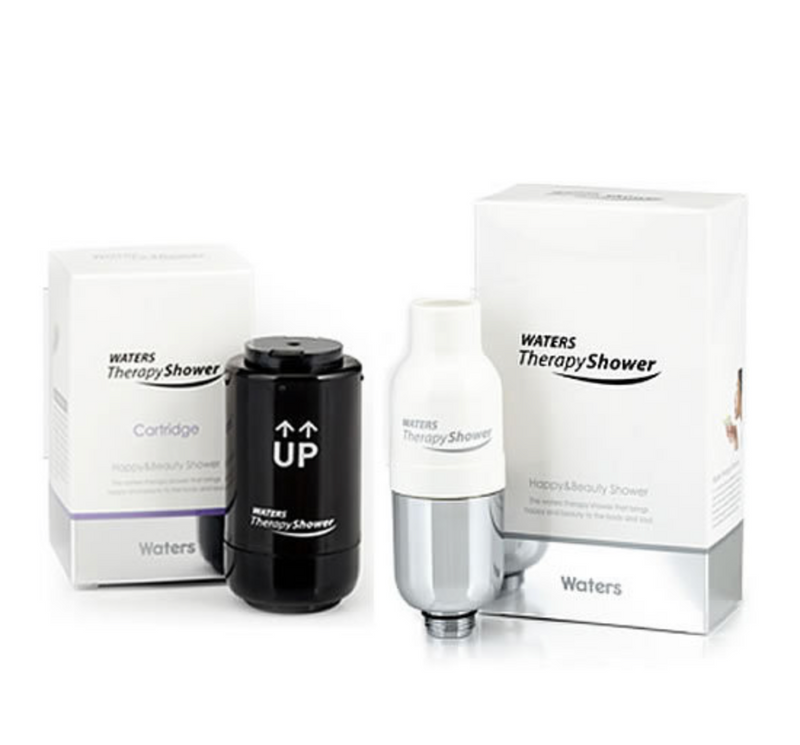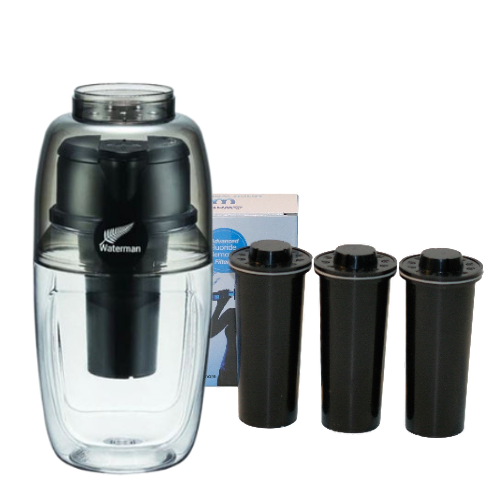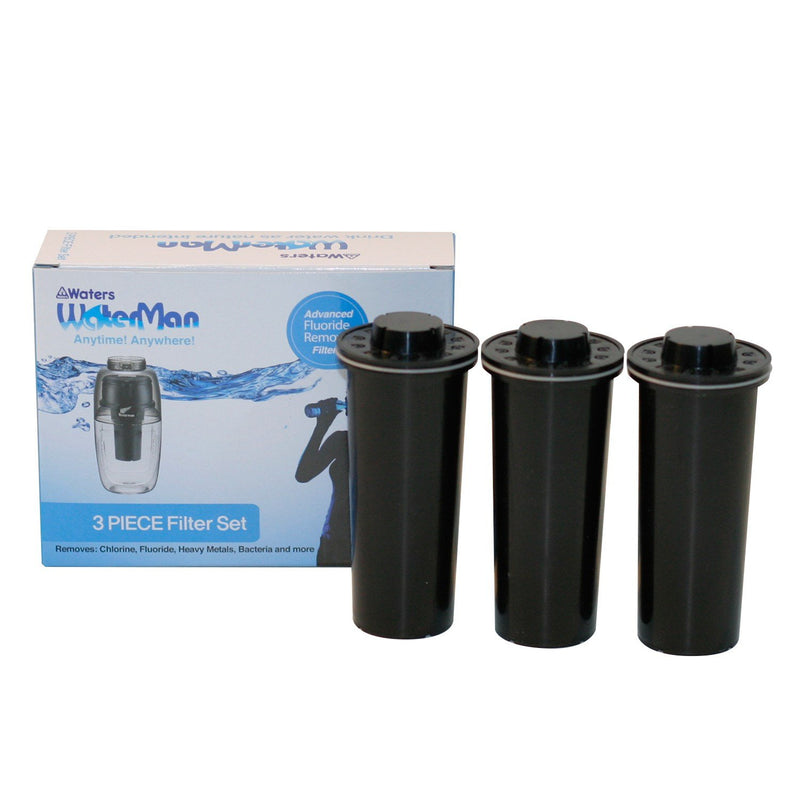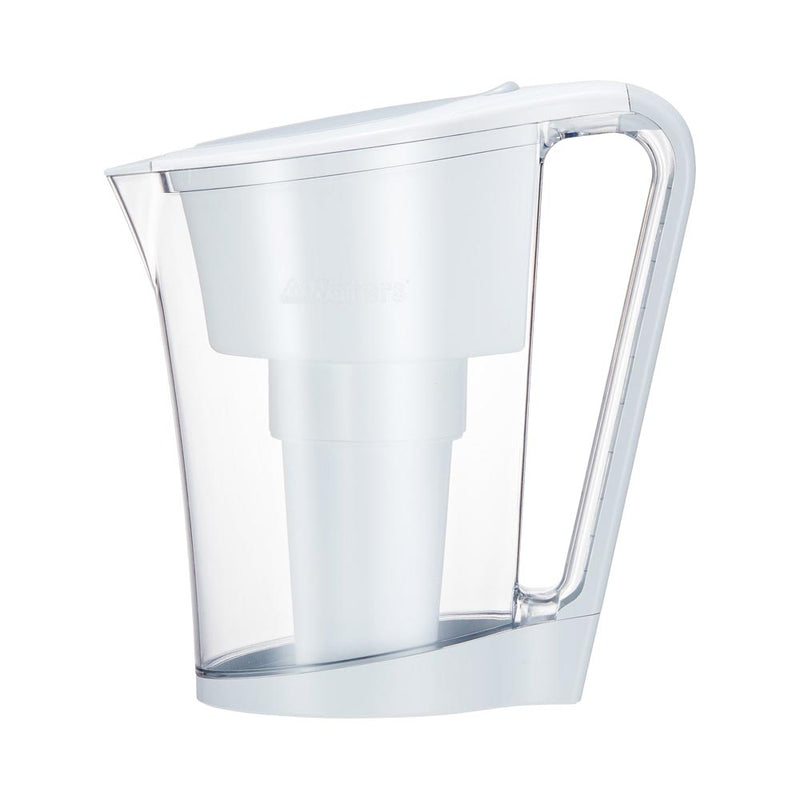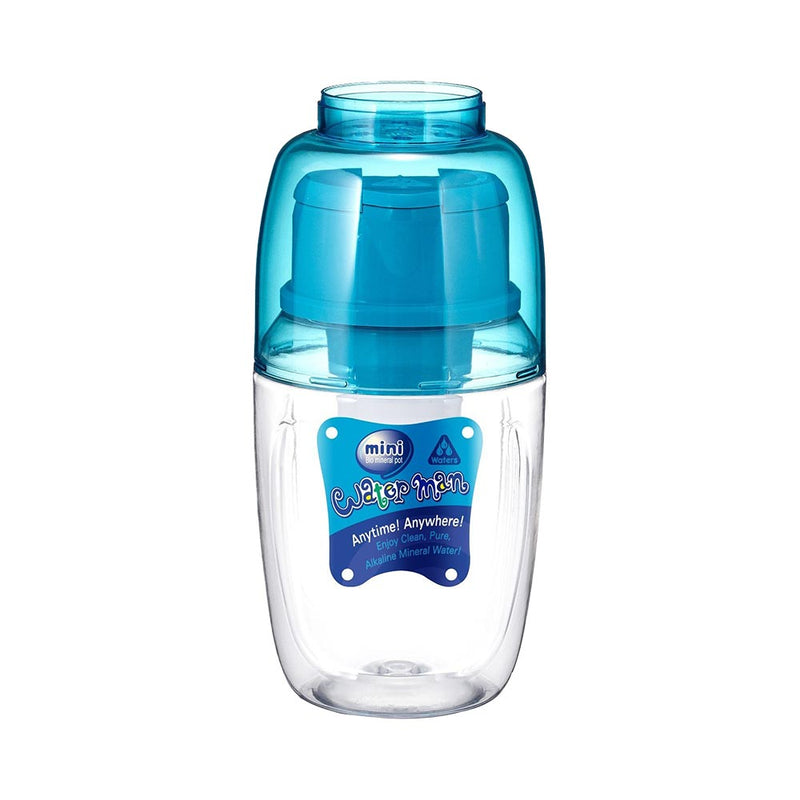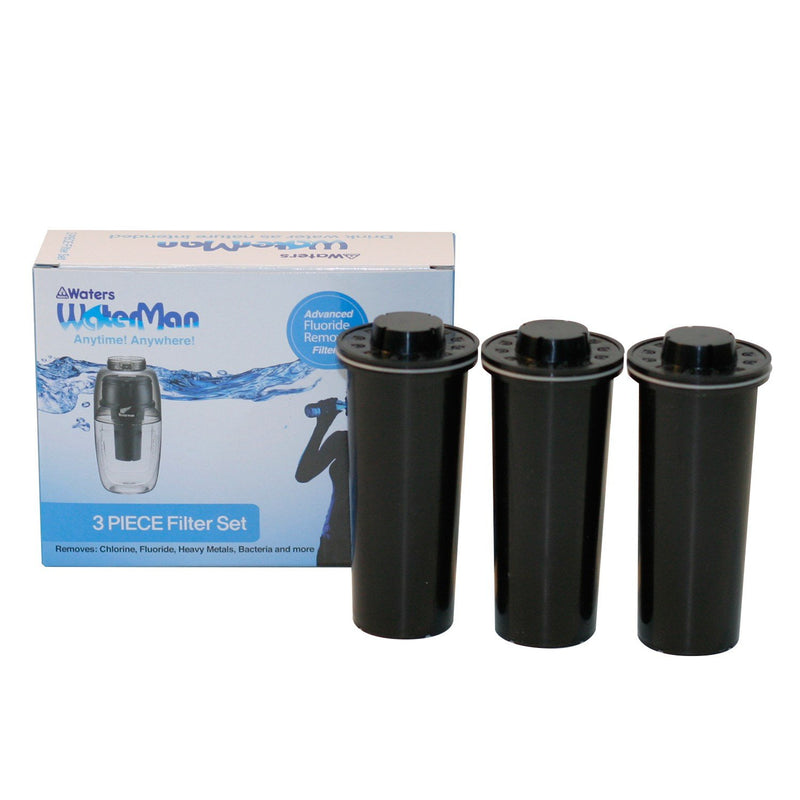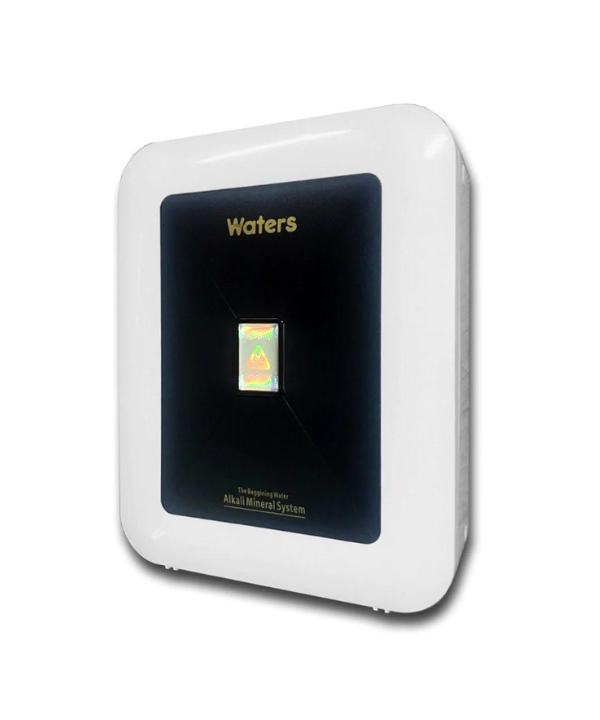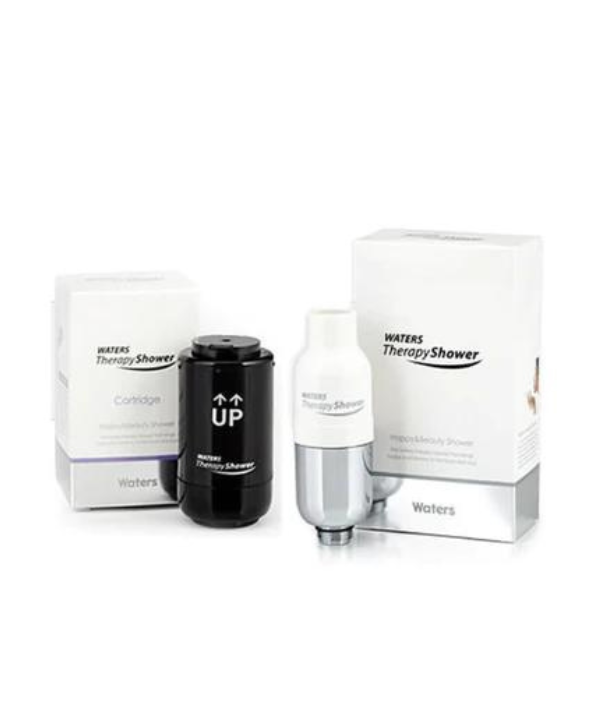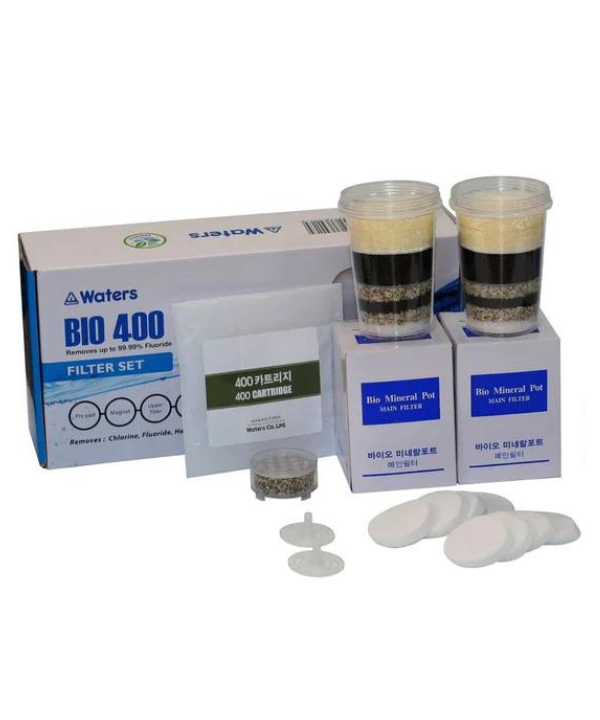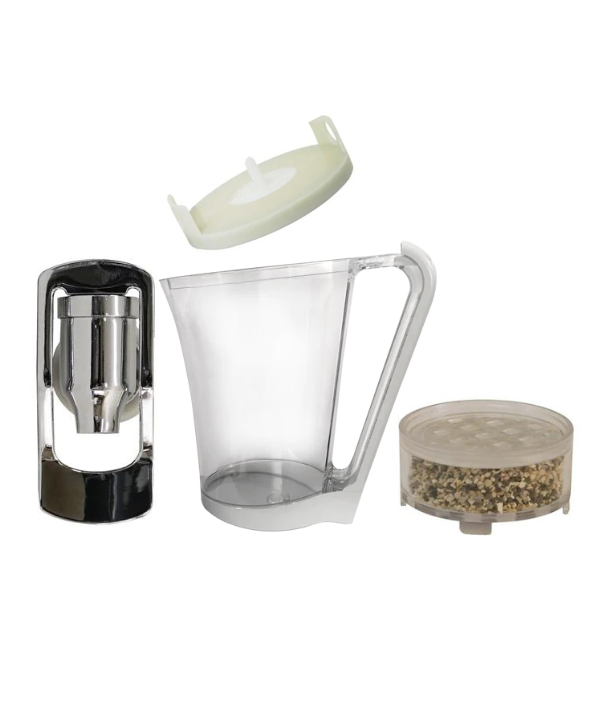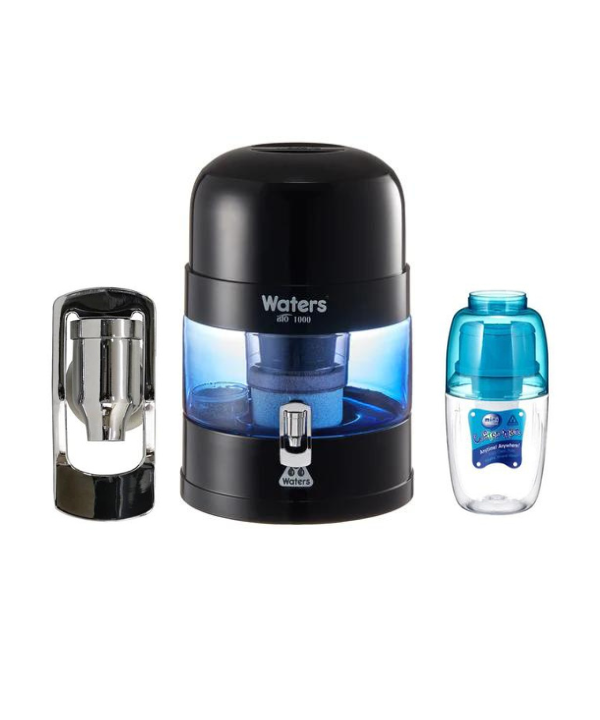Benchtop Water Filters FAQs
1. Do benchtop water filters work?
Benchtop water filters have proved to be highly effective. Using multiple filtration stages, they eliminate a wide range of contaminants, including chlorine, heavy metals, and pesticides. Plus, they retain essential minerals for improved water quality and eliminate unpleasant odours and pigments.
2. Are countertop water filters worth it?
Countertop filters are an eco-friendly solution for clean water, especially if you don't have access to whole-house filtration. They provide a cost-effective alternative to under-sink water filter systems. Sitting on the benchtop, they provide fast and convenient access to cleaner, healthier water. Their efficiency, portability, and long-lasting construction make countertop filters a worthy investment.
3. How long does a countertop water filter last?
Depending on the brand and model specified and with proper maintenance, a benchtop water filter can last several years. The main unit is durable, though filter cartridges need to be replaced periodically. Filter sets included in Waters Co benchtop filters can last up to 15,000 litres or 60 months (whichever occurs first). However, cartridge lifespan depends heavily on water quality and usage.
4. What are the benefits of using a benchtop water filter?
Benchtop water filters have many advantages, including:
- Cost-Effectiveness: In the long term, a benchtop filter provides purified water at a lower cost per litre than bottled water.
- Sustainability: Benchtop filters help reduce single-use plastic consumption.
- Convenience: Filters are easy to install and use without the need for plumbing.
- Enhanced Water Taste: Benchtop filter removes chemicals and contaminants that affect taste and odour.
- Improved Health: Contaminated water is linked to the transmission of many dangerous diseases. Benchtop filters help purify tap water, reducing contamination threats. While benchtop filters focus on drinking water, consider also improving the water you use for showering. Our shower filters can reduce chlorine and other impurities for healthier skin and hair.
5. What types of contaminants can benchtop water filters remove?
Waters Co benchtop filters effectively remove:
- Chlorine
- Fluoride
- Heavy metals like lead, copper, zinc, and mercury
- Volatile organic compounds
- Pesticides and herbicides
- Sediments and particulates
- Microplastics
- Bacteria and viruses
- Forever chemicals
6. Do benchtop water filters remove fluoride and chlorine?
Waters Co benchtop filters effectively remove chlorine and fluoride. Using advanced multi-stage filtration systems, these filters can reduce up to 99% of contaminants.
7. How often do I need to replace the filter cartridge?
Cartridge replacement depends on water quality and usage. Generally, it's recommended to change cartridges every 6-12 months. Some models, like the Waters Co BIO 1000, come packed with cartridges that can last up to 5 years, assuming 8 litres of water are used daily.
8. What is the lifespan of a benchtop water filter?
A well-maintained benchtop water filter can last for many years. The whole construction is built to be durable and enduring. However, filter cartridges require periodic replacement, depending on water quality and daily usage. Waters Co benchtop filters work for up to 4-5 years before requiring cartridge replacement.
9. Is it easy to install a benchtop water filter?
Benchtop filters' installation is simple and doesn't require professional help. There is no need to connect to electricity or a plumbing system. Additionally, Waters Co provides helpful step-by-step guidebooks with each filter. Clear diagrams and detailed video instructions make installation seamless and fast.
10. How does a benchtop water filter compare to other types of water filters?
Benchtop filters are portable, convenient, and don't require plumbing like our under-sink filters. Although they don't purify as extensively as reverse osmosis systems, high-quality benchtop models clean water more effectively than water filter jugs. They can remove up to 99% of sediment, rust, bacteria, cysts, chlorine, chemicals, heavy metals, fluoride, and unpleasant odours. Plus, the specialty cartridge in the Waters Co benchtop filter adds over 60 bioorganic trace minerals to water as well as alkalising elements to make it healthier and cleaner-tasting to drink.
11. Are benchtop water filters portable?
Benchtop water filters are portable and easy to move. They are ideal for renters, compact kitchens, or small offices. Waters Co benchtop filters don't require a direct tap connection and can be placed anywhere you choose, saving valuable countertop space.
12. How much maintenance does a benchtop water filter require?
Benchtop filters require minimal maintenance. Only filter cartridges need to be replaced. Regular unit cleaning does help maintain water quality in the reservoir and ensure peak performance. Simply remove the reservoir, empty it, and clean it with mild detergent. When you've completed disinfecting with an ingestion-safe solution, flush it with fresh water in case of residue.
13. Can a benchtop water filter improve the taste and odour of water?
Benchtop water filters can improve the taste and odour of tap water by removing chemicals, heavy metals, and other impurities. Waters Co water filters add over 60 trace minerals to clean water, making it more palatable.
14. What materials are benchtop water filters made from?
Waters Co benchtop filters are made from BPA, BPB, and BPS-free plastic with a glass reservoir. Quality materials and thoughtful construction ensure durability and prevent contamination.
15. What should I consider when choosing a benchtop water filter?
When choosing a benchtop filter, consider the quality of your tap water and the amount of drinking water you need every day. Check the filter's efficiency, what contaminants it can remove, its lifespan, cartridge replacement cost, material quality, installation requirements, and compatibility with your tap.
16. Are benchtop water filters eco-friendly?
Benchtop filters reduce the need for bottled water, lowering plastic waste. Every second, around 1500 plastic water bottles end up in landfills or oceans. With a benchtop filter, you get virtually unlimited access to clean water without damaging the environment. You can fill your reusable bottle at home and take this pure, healthy water with you wherever you go.
17. What is the cost of replacing filter cartridges?
Replacement costs vary by brand and model. Waters Co BIO 1000 replacement filter kit has a running cost of approximately $125 annually. On average, you get clean, healthy, mineralised water for around 4 cents per litre. Similar brands may appear cheaper initially, but in the long run, they cost up to $250 per annum, or around 8 cents per litre, because they require replacement every 6-12 months.
18. How do I clean and maintain my benchtop water filter?
Regular cleaning of the exterior and reservoir, along with prompt filter cartridge replacement, ensures optimal performance. Waters Co provides detailed step-by-step instructions for each filter to prolong its lifespan.
19. Can a benchtop water filter be used for well water?
Most benchtop filters can be used for well water, but it's best to verify the filter's specifications to ensure it can handle common well water contaminants, such as sediments and high mineral content. Waters Co benchtop filters are highly effective, removing up to 99% of sediments, bacteria, cysts, and heavy metals typically found in raw water. Due to the lower water quality of well water, you may find you need to replace the filter cartridge more frequently.
20. How do I know when to change the filter?
Most benchtop filters recommend replacement based on usage time, typically after 6-12 months. Some models also have indicators to help gauge the filter condition. Waters Co benchtop water filters come complete with all the features and replacement parts you need to keep the system going for years. With an average consumption of 8 litres per day, the filters will last up to around 4 years without cartridge replacement.
21. Should I filter my tap water in Australia?
Filtering tap water in Australia is not mandatory but is recommended. The water quality has had a reliable reputation for decades and is still considered good enough by regulatory authorities. However, recent tests reveal high concentrations of Forever Chemicals in Australian tap water. Many water treatment plants use aluminium and chloride to purify water, which affects water's taste. Benchtop filters can remove residual chlorine, potential contaminants from pipes, and Forever Chemicals (known as PFAS) and improve water taste and odour.
22. Is a home water filter worth it?
A home water filter is absolutely worth the investment due to its health, convenience, and environmental benefits. Filtering tap water reduces contaminants like chlorine, lead, and microplastics, delivering cleaner, better-tasting water that's safer to drink. Home filters are more cost-effective than bottled water, helping reduce plastic waste and lowering long-term expenses. Modern filtration systems are easy to install and low-maintenance.
23. Is it worth installing a water filter?
Installing a water filter is worth it for multiple reasons. Water filters effectively reduce contaminants such as chlorine, fluoride, heavy metals, pesticides, and bacteria, improving water safety and taste. Installing a filter also saves money over time, reducing the need for bottled water and minimising plastic waste, making it an eco-friendly choice. Some filters, like benchtop models, don't require a tap connection and are easy to install and maintain, ensuring a hassle-free experience. They provide continuous access to clean, fresh-tasting, mineralised water.
24. Should you filter tap water?
Filtering tap water is generally recommended to reduce contaminants, improve taste, and remove cleaning substances added during municipal treatment. Water quality varies from region to region, and while tap water quality has been tested to declare it safe for drinking, water treatment plants have to add chlorine and other chemicals to remove the most common contaminants. Home benchtop water filters help remove up to 99% of sediment, rust, bacteria, chlorine, chemicals, heavy metals, fluoride, and unpleasant odours left after public water filtration.
25. What is the healthiest way to filter tap water?
The healthiest way to filter tap water is to use a multi-stage filtration system, like the Waters Co benchtop filters. They target a wide array of contaminants, including chlorine, heavy metals, pesticides, and microplastics, while retaining essential minerals like calcium and magnesium that contribute to overall health. This method offers comprehensive purification without stripping the water of beneficial elements. Waters Co benchtop filters add over 60 essential minerals to the water to make it healthier and better tasting.
26. Why does filtered tap water taste different?
Filters remove impurities like chlorine, sediment, and metals, which may affect the water's taste. The absence of these contaminants gives filtered water a cleaner, smoother taste. Plus, Waters Co benchtop water filters help balance pH and add minerals to the water, making it healthier and better-tasting.
27. Do countertop water filters really clean water?
High-quality filters effectively remove many common contaminants. Waters Co benchtop water filters, for instance, feature an unmatched 13-stage purification system with sterilisation, filtration, and activation. They can filter out up to 99% of sediment, rust, bacteria, viruses, chlorine, forever chemicals, heavy metals, and fluoride.
28. Are tap water filters worth it?
Tap water filters are usually worth the investment, as they can significantly improve water quality, taste, and safety. Tap water may contain various contaminants, including chlorine, lead, heavy metals, pesticides, and even microplastics. Depending on where you live, these contaminants can affect the water's colour, taste, and odour. Tap water filters, especially multi-stage systems like the Waters Co benchtop filters, can effectively eliminate these harmful substances, providing cleaner and safer drinking water.
29. Do water purifiers really work?
Yes, water purifiers do work! They are highly effective in removing contaminants and enhancing water's taste and odour, making water more enjoyable and safer to drink. For example, the Waters Co benchtop filters use multi-stage purification that can remove chlorine, heavy metals, pesticides, volatile organic compounds, bacteria, microplastics, fluoride, and other impurities while retaining beneficial minerals like calcium and magnesium.
30. Are water filters worth it in Australia?
Water filters are definitely worth it in Australia. Due to recent findings of Forever Chemicals like PFAS in Australian water supplies, concerns have risen about long-term exposure to these and other contaminants. Waters Co water filters can effectively remove harmful Forever Chemicals, along with chlorine, heavy metals, fluoride, bacteria, and other impurities. Using such a reliable home water filter provides peace of mind, offering cleaner, safer, and healthier drinking water daily.
31. Can a benchtop water filter remove contaminants from tap water?
Benchtop water filters effectively remove most common contaminants from tap water. For example, Waters Co BIO 1000 will filter out up to 99% of sediment, rust, bacteria, cysts, chlorine, chemicals, lead, zinc, aluminium, copper, fluoride, and unpleasant odours.
32. Does a benchtop water filter make tap water safe to drink?
A benchtop water filter can make tap water considerably safer to drink. Removing impurities like chlorine, heavy metals, pesticides, bacteria, and microplastics, helps protect against a range of potential health problems linked to these contaminants found in tap water. Waters Co benchtop filters offer multi-stage filtration to improve water purity while also adding essential minerals and balancing the pH, making your tap water healthier to consume.
33. How effective is a benchtop water filter at improving the taste and smell of tap water?
Benchtop water filters are highly effective at improving the taste and smell of tap water. They can remove common contaminants such as chlorine, copper, lead, and rust, which often give water a metallic or chemical taste and odour. Waters Co benchtop filters use multi-stage filtration to reduce these elements up to 99.9%, resulting in fresh, pure, and better-tasting water.
34. What specific contaminants in tap water can a benchtop water filter remove?
Waters Co benchtop filters can remove the following contaminants:
- Chlorine
- Heavy metals (lead, mercury, zinc, copper, aluminium)
- Pesticides and herbicides
- Sediments
- VOCs
- Fluoride
- Forever Chemicals
- Rust
- Bacteria
- Microplastics
35. Can a benchtop water filter remove lead from tap water?
Many high-quality benchtop filters are designed to reduce lead content. Waters Co BIO series filters out lead up to 98.2%, delivering great-tasting water for your home or office. This efficient filtration helps ensure safer drinking water while enhancing the water's overall quality and taste.
36. Does a benchtop water filter remove bacteria and viruses from tap water?
Most benchtop filters effectively reduce bacteria but may not completely eliminate viruses unless they use advanced filtration methods. Ceramic filters are more effective in removing bacteria, while UV filters are more effective at removing viruses. The Waters Co benchtop filters use bio-ceramic cartridges—kiln-fired silver-ionised coral, silica, and mineral sands—that prevent bacteria from growing.
37. Can a benchtop water filter remove microplastics from tap water?
Modern, high-quality filters can capture microplastics and filter them out as part of the sediment and particle filtration stages. Waters Co benchtop filters include pre-filters which can effectively remove even the smallest plastic particles from tap water.


